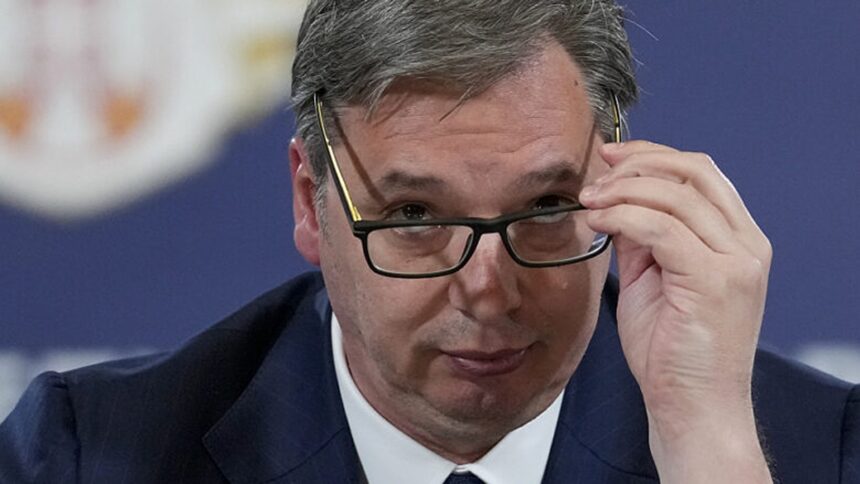Serbian President Aleksandar Vučić announced plans to hold talks with Russian, American, and European partners in an effort to find solutions for Serbia’s oil and gas supply challenges.
In a statement shared on Instagram, Vučić said that if no resolution is reached during these discussions, Serbia will make its own decisions starting the following week.
The president also noted that the recently imposed sanctions on Russian oil giants Rosneft and Lukoil will take effect on November 21. The sanctions — introduced by the U.S., EU, and the UK on October 23 — aim to increase pressure on Moscow over its ongoing war in Ukraine.
Vučić warned that Serbia could face serious difficulties with oil supplies and potential problems with natural gas, as the EU Council’s decision to phase out imports of Russian gas has left Serbia in a precarious position.
However, EU Enlargement Commissioner Marta Kos clarified before the European Parliament on October 21 that the European Union is not cutting off Serbia’s access to Russian gas at this time.
Serbia remains heavily dependent on Russian gas imports, and officials have expressed disappointment that Moscow extended the existing gas agreement only until the end of 2025, instead of renewing it for three years as expected.
On the oil front, U.S. sanctions on Serbia’s Naftna Industrija Srbije (NIS) — due to its Russian ownership — came into effect earlier this month, creating additional strain. NIS is Serbia’s only company engaged in oil exploration, production, and refining.
Vučić also pointed to further complications following a fire at Hungary’s MOL oil refinery, describing it as a potential act of sabotage, though investigations are ongoing. The incident poses challenges for Serbia, which had relied on Hungary’s energy assistance to offset the impact of sanctions.
He added that Serbia had reached an agreement with MOL to import oil derivatives, but following the refinery incident, it remains uncertain whether Hungary will have sufficient oil supplies even for its own needs.







